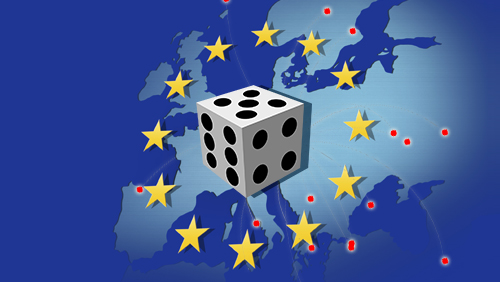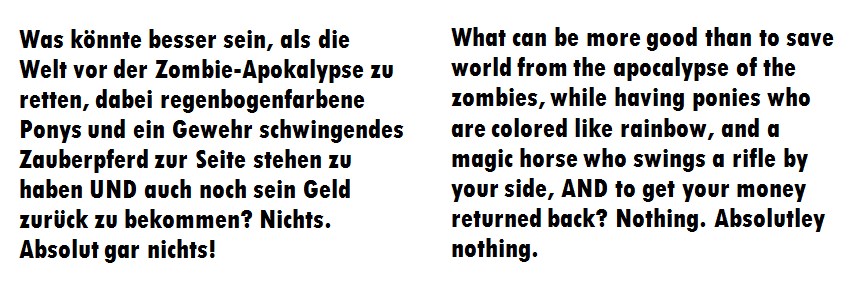This is a guest contribution by Valentin Stanga content manager for the Malta based All In Translations. If you would like to submit a contribution please contact Bill Beatty for submission details. Thank you.
 iGaming is one of the most rapidly flourishing forms of entertainment across the European Union. With almost 7 million active daily players and expected annual revenues of approximately €13 billion in 2015, things look promising and upbeat, shaping a sizable market serviced by many of the leading gambling companies out there.
iGaming is one of the most rapidly flourishing forms of entertainment across the European Union. With almost 7 million active daily players and expected annual revenues of approximately €13 billion in 2015, things look promising and upbeat, shaping a sizable market serviced by many of the leading gambling companies out there.
Surprising as it may seem, however, a great number of EU countries have been constantly hesitant on regulating online gaming. Juridical skepticism has mingled with unfounded concerns such as an abrupt rise in gambling addiction or the dilution of gusto for traditional land-based environments, keeping domestic markets incompatible with or closed to global competition.
It took a while for authorities to realize that zero regulation or a tight ban were not solutions for the future. Prohibition and obsolete laws usually result in illicit parallel markets, making legal control an impossible task where unlicensed operators and their players continue to contribute clandestinely to the show going on.
Drafting specific laws from scratch and amending worn-out regulation slowly took over and replaced the orthodox inertia of national policymakers. The advantages dawned on them and are now acknowledged as essential for a preferable online gambling landscape:
- Additional tax revenues
- Improved supervision of the operators
- More competitive product quality
- The snuffing out of the “forbidden fruit” effect
- Better protection for the players
- Ground and credibility for the industry
Country-by-country regulation is now common across Europe, with countries like Holland, Portugal, Poland, Romania and Italy proposing, introducing or changing their online gambling legislations. Consequently, new markets and market niches emerge or are anticipated. Where new markets open up, so too does the competition, with top brands pushing to get the attention of local players.
However, working your magic on foreign ground is not about speaking louder in English. The “Can’t Read, Won’t Buy: 2014” report by Common Sense Advisory highlights that more than half (56%) of buyers of all language abilities favor websites where info is displayed in their native language. In other words, non-Anglophone people are more likely to purchase something online when the offer is wrapped up in a vernacular package. This isn’t a recent phenomenon. Back in 2011, a survey conducted by The Gallup Organization revealed that 82% of European consumers were less likely to shop online if the website was in a different language than their own.
Now, if the plan is to enter new markets as part of your business development strategy this year, then you’ll need to think clearly about language. Translation can do more harm than good to your company or brand when not handled by an expert with a trained set of eyes. In fact, poor translations can jeopardize any attempt to branch out into new markets. In iGaming particularly, where content is jargon-heavy, translating with a dabbler’s level of skill will knock you two steps back!
The two most common mistakes online gambling companies and affiliates make when translating their web content into other languages are one, deciding to hire professional translators with no knowledge of the online gambling scene or its terminology. In this case, what you’ll see is a grammatically correct and naturally sounding message considerably stripped of its specific intelligibility. Put differently, you’ll end up with content that reads well and is up to grammatical standards but is basically dead wrong. Your players will not being paying to play on your site and you will lose out.

The second bad decision is to use in-house native employees, or worse, non-native. Why? Because more often than not, they will produce what we generally like to call “zombie translations”. The lingo is usually there, properly rendered in the foreign language, but your content is just a soulless mess cluttering up your website. Awkward grammatical constructions, clumsy syntax, faulty punctuation, recurrent misspellings and an overall sense of ghostly rigidity – how worse can you get?
Poor communication leads to a massive loss in credibility. Making your brand sizzle in a new market should start by avoiding zombie translations.

Why use specialized translators? They will use a winning strategy of localization. What is a localized translation? The criteria for good localized translations are:
- Cultural adequacy
- Player focus
- Brand consistency
Correct grammar and spelling is vital but it can’t be the sole standard of translation excellence. If you want your message to sound locally authentic, to grab attention and have the desired effect, you need to make sure that your translated content is not only accurate but also culturally appropriate. Symbols, colors, sounds and gestures are all culturally bound and have a shared meaning within specific cultures. Consequently, your “voice” and your “garb” should not be perceived as alien or vexing to the local community. Researching the cultural nuances of your players is essential to any localization project.
However, reading and learning cultures is not enough. This merely deals with the problem of context-awareness and sounding local. Trying to win the hearts and minds of potential players involves a deep scan of their psychology. Who are they? What are their needs, goals, preferences and taboos? What is the consistency and frequency of their gaming behavior? Answering these questions is essential to creating translations and marketing materials capable of engaging large online audiences.
Injecting local flavor into your products and services is what localization is all about.
How much localization is enough? This is an important question, especially as you work to maximize your brand’s relevance in foreign markets while keeping your integrity intact. A top language service provider would determine how much localization is needed for you and your future players and which brand ingredients can be safely customized while preserving their identity and consistency.
By creating and maintaining style guides and glossaries for your brand-specific vocabulary, specialized translators will ensure your voice and style remain across everything piece of content translated.
Selling online games into new EU markets starts by conveying your message while maintaining its meaning, and ensuring cultural relevance and brand integrity. For this to happen, you need professional translators with a fine iGaming background.
Valentin is the content manager for the Malta based All In Translations http://allintranslations.com/.